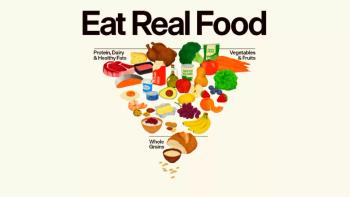
- July 2021
- Volume 38
- Issue 7
Good quality of life may help overcome food allergy
Early exposure to potential allergens has been shown to help with food allergy. An investigation examines how quality of life might affect this exposure.
A good quality of life (QOL) may promote outgrowing an allergy to egg, according to findings from a recent study in Japan. The investigation, which examined factors associated with outcome for egg allergy 1 year after an oral food challenge (OFC), was conducted in 93 children aged younger than 72 months with egg allergy.
Participants underwent an OFC with a challenge dose based primarily on the child’s clinical history. When the OFC was negative, the caregiver was advised to give the child no more egg at home than was received in the challenge dose. When the OFC was positive and the child had mild symptoms, the advice was not to consume more egg than the threshold dose. When the OFC was positive with moderate to severe symptoms, egg was eliminated from the diet. Parents could increase the amount of egg offered when the child had no adverse reactions to the initial amount.
After 1 year, the investigators surveyed parents about how much egg their children safely consumed and classified patients as “successful” (group S) if the amount had increased or “unsuccessful” (group U) if it remained the same or decreased; 57 participants (61.3%) were classified as in group S and 36 (38.7%) as group U. Investigators also evaluated children’s QOL with a parental questionnaire when the OFC was administered and, for 48 patients, at the 1-year follow-up.
A comparison of QOL scores showed that all the scores in group U were significantly higher than those in group S at baseline, indicating that group S patients had a better initial QOL (the lower the score, the better the QOL). At the 1-year follow-up, scores remained the same in group U, whereas in group S, the QOL had improved. Factors associated with an increased egg intake level at follow-up were absence of comorbid asthma or comorbid atopic dermatitis and a good QOL.
Thoughts from Dr. Farber
One would think that instructing parents to give their children egg would be straightforward, but this study shows that it is not for families with lower quality of life. My take-home message: Do not underestimate the problems a difficult home situation (because of poverty, arguing parents, illness of other family members, etc) can cause.
Reference
1. Hamada K, Nagao M, Imakiire R, et al. Factors associated with outcome of egg allergy 1 year after oral food challenge: a good baseline quality of life may be beneficial. Pediatr Allergy Immunol. Published online May 7, 2021. doi:10.1111/pai.13534
Articles in this issue
over 4 years ago
Allergies, asthma, and climate changeover 4 years ago
Gastrointestinal disorders: Red flags and best treatmentsover 4 years ago
A newborn with fever and tremorsover 4 years ago
A case of lime diseaseover 4 years ago
Keeping your child safe from COVID-19 this summerover 4 years ago
Adjunctive medications for epilepsyover 4 years ago
Helping parents cope with adolescent behaviorover 4 years ago
Participation in after-school activities decreases ADHD severityNewsletter
Access practical, evidence-based guidance to support better care for our youngest patients. Join our email list for the latest clinical updates.






